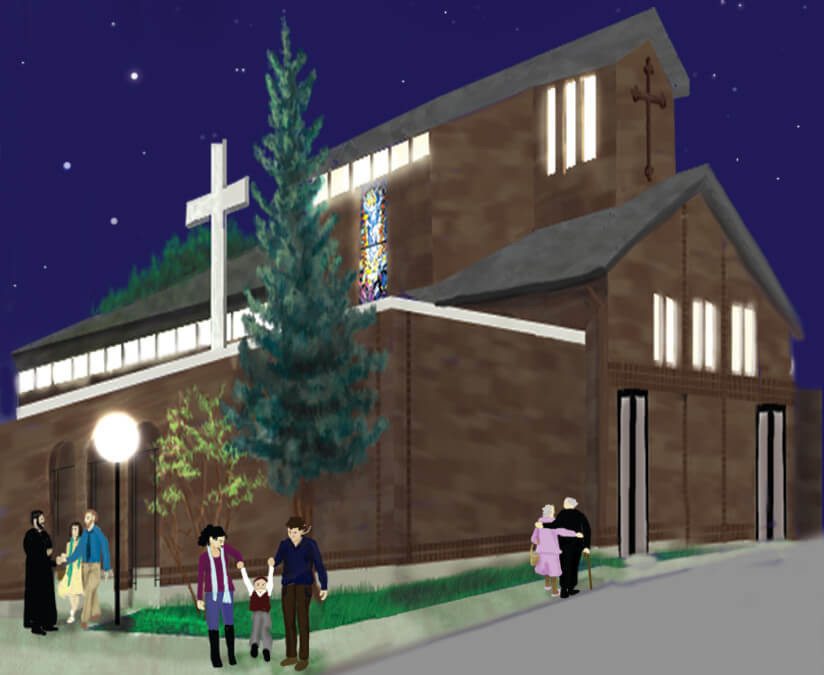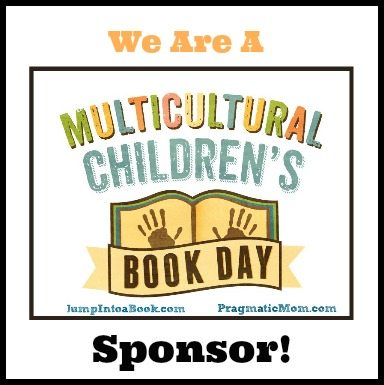Guest post by Victoria Marckx, church school director at St. Demetrios Orthodox Church, Winnipeg, Manitoba
The phone rings Saturday night. Your pastor is on the phone. “Great news! Christ is coming to OUR parish this Sunday! Oh, and He needs gluten-free, dairy-free food, without nuts.” Do you say, “No problem!” and bring out your best? Or does your heart sink because Christ, like so many visitors, will not find anything He can eat after Divine Liturgy?
“Well,” you say, “it’s not a big deal if people can only drink a cup of coffee, I mean, the important thing is the fellowship, after all!”
Let’s look at that for a moment. For many Orthodox Christians, both cradle and convert, this fellowship hour is one of the most important in their week. For cradles, it is often their only contact with same-ethnicity friends, the people who share the rich cultural traditions they grew up with. My own parish is more than 50% first generation Greek. It matters to them. For converts, it is often their only real-life contact with Orthodox Christians, at all. They are trying to build the richness of a Christ-centered home, without the foundation of family memories to help them make their homes a “Little Church.” Contact with others who share their goals, faith, and celebrations is vital. It matters to them.
“So, why can’t they just have coffee and chat? No one is asking them to leave!”
No, but you are not asking them to stay, either. What does that extra hour mean? To some, especially in regions of the USA and Canada where churches are few and far between, this is what it often means: A fast from midnight until Holy Communion, made harder by the fact that when you drive more than two hours to your parish, you have to get up very early, and wrangle your children into their Sunday best, and out the door. You then have a two-hour drive BACK. All this before you can start cooking a meal.
So, let’s say they have family and friends near the parish, or can go to a restaurant, or the parish serves some form of solid, actual lunch food. Life just got that much easier. Eat at church, and hope the children nap on the two-hour drive home, and thank goodness no one has to start cooking immediately, because you already ate.
Now consider how it looks to the family who has food allergies. Same time frame, same hungry kids … and no options.
Family and friends often do not accommodate food allergies, or don’t know enough to do so, so they seldom go to Sunday dinner. Restaurants that are gluten-free, dairy-free, nut-free? Even when some restaurants have gluten-free options, the risk of cross-contamination is real, and often servers are not knowledgeable enough to give proper information. Nothing at coffee hour, the kids are melting down, parents are starting to get that hunger headache, and are faced with a two-hour drive home. Is it any wonder they skip out early, despite the need for fellowship? Or don’t come at all, because it’s not safe for their children? Or get yet more sleep-deprived by having to pack a picnic lunch for themselves every Sunday morning?
Think of it like inviting people over for dinner at your home, especially on feast days, and telling them they have to bring all their own food and drinks. And plates, cups, and flatware. Essentially, that’s what we are doing. You’d never do that in your own home! How is it acceptable to do this in our parishes?
Matthew 25 is very clear on some things … like feeding the hungry, giving drink to the thirsty, and welcoming strangers. DO people feel welcome in your parish? Would you have a table for Christ? When we make sure that the table is richly laden for all, we ARE feeding Christ, and not turning Him away at the door to the hall.
What can we do to fix that?
The good news is that it has never been easier to navigate. First and foremost, EDUCATE YOURSELF. The Celiac Association website is a great place to read. Get in a guest speaker from your local chapter if you need to, to talk about how to make your kitchen safe. Talk to the people in your parish that have food allergies, and ask what they need, and how you can include them.
Learn the hidden pitfalls
Soy sauce … yep … it has gluten. Oatmeal…it may not be gluten free. Buy specifically labelled gluten free oats. Vanilla? The alcohol could be grain alcohol … check, because you never know. That open jar of gluten-free jam or sunbutter? Does it have crumbs in from previous sandwich making? Did you just put that gluten-free bagel into the same toaster with all the wheat bread crumbs? That word “spices”? It can mean MSG.
It’s work … but so is all love.
How St. Demetrios parish handles food allergies
I’d like to share with you some things that can be done to welcome others to your coffee hour, parish events, and even make it possible for children to go to Church School. While far from perfect, our parish tries to be as inclusive as possible.
1. Know the allergies
I am the Church School Director at my parish. The classrooms are all peanut free, because there are allergies. The Church School shares classroom space with our Greek School, and there are children there with allergies. As a matter of long-standing policy, we take pictures of those children with food allergies and other allergies, and they are updated yearly and kept on the wall in the school office. On them is the child’s name, allergies, and whether the child carries an epi-pen.
The parish has sponsored classes for all the teachers on how to do basic first aid and CPR, use the epi-pens, care for someone having a seizure, and use the defibrillator hanging on the wall in the classroom building. All registration forms ask if there are allergies, and if the child carries an epi-pen or an inhaler. Newcomers visiting the parish are invited to bring their children to class, and are always asked if there are any allergies.
2. Keep it comparable
I am personally determined that the children with allergies should have a snack as comparable to the one everyone else is having as possible. It is absolutely no fun for any child, especially one too young to properly understand, to watch everyone else eating cupcakes and be handed an apple. It makes a small sinking every time, and the child does not feel properly wanted in the place that should be most loving and welcoming … his Church.
So, what does this mean? In practice, it means I, as director, make sure I know a few days in advance what parents are bringing for snacks. So: Bringing meatballs and fruit? Great snack! I pull out my dedicated GF crockpot, and make meatballs at home, because I trust only me to do this…unless one of the gluten free people are making the snack. Bringing cereal cups and milk? Sure. I’ll buy a new box of gluten free cereal and non-dairy milk.
It’s never been easier to buy gluten-free. Not a problem. Often it can get a bit tricky … one lovely lady brought wagon wheels. I went out, bought GF/DF graham crackers, chocolate, and marshmallows, making sure the items were all GF/DF/nut free … and manufactured, well, they were not wheels, but wagon sides. My GF/DF families loved them. Pizza bites? Haven’t found a gluten-free dairy-free substitute, so those days, the kids get gluten free, dairy free pizza. Honestly, they don’t mind.
We have two tables set up, and one is labelled gluten-free and dairy-free. The helpers know which children need it. And if you’ve never seen the look on a three-year old’s face when told that, yes, he can eat THESE muffins??? The light from the smile was blinding. Ditto when they learned about gluten-free, dairy-free perogies. And sausage with no gluten.
3. Solutions for the greater coffee hour
Some solutions to have on-hand: Gluten free, dairy free sausages can be found at Costco, and egg omelets with various fillings can be made in new muffin cups from the dollar store. Baking trays from the dollar store can be used to make gluten free bagels all toasty warm. Boiled eggs are gluten free. Easy to make a bowl (keep shell on) and set it on the table.
Keep a separate table … clean it … really clean it … with something like a Lysol Wipe or Clorox Clean-ups. Do not use the same rag and bucket of water you use for the other tables. Put a separate set of plates, cutlery, etc. there, to minimize cross contamination. Label it. Instruct other people not to randomly come by and put things on it. Have a person who knows those tiny people who need special allergen-free foods steer them towards “their table”.
4. Goodie bags at special events
When we hand out goodie bags at Church School or at Lenten retreats, or any other special event, those goodie bags are allergen free for all the allergies we know about (nuts, peanuts, gluten, dairy, strawberries, raspberries, etc.). We make certain that all the children receive the same items. This means reading labels. We love our little people, though, and so we do this.
5. Special events for the greater parish
Parish-wide events are harder, but ensuring there are several dishes that work for those who need them is not that complicated. Again, when a parish has a pot luck, coordinating with the people who have allergies can be key. It may be necessary to assign “main dish,” “dessert,” “salad,” etc. to the people who can handle allergen-free cooking. When I am feeling pressed for time, I often just call a gluten-free bakery and pick up what I need. Our last event had people looking with a bit of envy at the gluten-free table’s desserts.
6. Be careful
Be constantly aware of pitfalls that may include commercial companies changing recipes and suddenly including allergens. Did you know that some herbal teas contain gluten? Cross contamination can result from many sources, so if possible, dedicate pans, or buy disposable ones from Dollar Tree or similar.
7. Educate yourself
Subscribe to Facebook groups and internet forums that discuss these issues. Read the stories people with food allergies tell, how they describe being at parties and “pretending to eat something all evening, while starving hungry in the middle of people feasting.” Feel what they feel, cry, wipe your tears and determine to learn, learn, learn, and remember that no matter what, we are all members of the Body of Christ, and as such should not let one of our family members leave hungry. Spiritual hunger is fed by love, and we can show our love by making certain that physical needs are addressed with as much love as possible, so that when Christ comes to YOUR coffee hour, He will remember, and, on that final Day of Judgment, will say “I was hungry, and you gave me food.”
Read More
Disability and special needs: People sometimes feel uncomfortable around people with disabilities. It doesn’t have to be that way.
Love and food allergies at church: Alana Sheldal explains how to show love by serving your fellow parishioners food they can eat.
The Parable of the Great Feast: It’s such a familiar story that we don’t always hear what it says.
St. Demetrios is one of the parishes featured in Catherine’s Pascha.
If you need to help your church school children (or their parents) understand the importance of being careful and kind when people have food allergies, these picture books might help.
Buy the Books!

These delightfully diverse books provide disability representation (Elizabeth, one of the main characters, is an ambulatory wheelchair user). They also give Orthodox Christian children the rare opportunity to see themselves in books, and children who are not Orthodox the chance to see cultural practices they may not be familiar with.
Catherine’s Pascha
FINALIST IN THE 2015 USA BEST BOOK AWARDS
Catherine doesn’t like vegetables. She doesn’t like naps. She doesn’t like it when her mom combs her hair. She loves hot dogs, chocolate cake, and her best friend, Elizabeth. Most of all, she loves Pascha! Pascha, the Orthodox Christian Easter, is celebrated in the middle of the night, with processions and candles and bells and singing. And Catherine insists that she’s not a bit sleepy.
Celebrate the joy of Pascha through the magic of a book: Catherine’s Pascha. Available on Amazon, Bookshop.org, and my webstore.
The Saint Nicholas Day Snow
Shoes or stockings? Horse or sleigh? Does St. Nicholas visit on December 6 or on Christmas Eve? Will a little girl’s prayer be answered? When Elizabeth has to stay at Catherine’s house, she’s worried about her grandmother, and worried that St. Nicholas won’t find her. The grownups, though, are worried about snow.
Celebrate the wonder of St. Nicholas Day through the magic of a book: The Saint Nicholas Day Snow. Available on Amazon, Bookshop.org, or my webstore.




I belong to an AntiochIan parish and have to eat a strict ketogenic diet to control my blood sugar. I am rarely able to eat anything at coffee hour, and NEVER during fasting periods. I gave up on Fellowship a long time ago.
I know what you mean about fasting periods! The table tends to be loaded with pasta and rice and such. And there are so many people that doesn’t work for.
This is such a wonderful post. My daughter, now a teen, has life-threatening allergies to peanuts and tree nuts, and we suspect allergy to sesame as well. We also have at least three people in our parish who are gluten-free for health reasons. Especially during the fast, it can be hard for my daughter to find something at our potluck lunch after church that is safe for her, so we often pack a little snack and leave it in the car just in case. I don’t expect a whole church to modify its behavior just for her, but it would be so nice to know her safety is being considered.
This is a fine sentiment. However, it is less the thoughtless of the parish community than the scrupulousness of so many in the orthodox orbit. If it were only the very small handful of people with genuine and severe allergies, that would be doable. But we have so many “hippyish” mothers demanding accommodation to their idiosyncratic fears, obsessions, and irrationality about food, that accommodating everyone is simply impossible. And trying to draw a distinction between genuine needs and idiosyncratic “needs” can only blow up in the face of a parish.
Don’t forget all the other allergies out there. Although, I doubt you do given the article. My daughter is allergic to corn, soy, eggs, and fish. My husband is allergic to almonds, apples, and moldy cheeses. A cousin is severely allergic to sunflower seeds. We have to bring everything for my daughter and my husband has more than once taken a bite of salad to taste one of his allergens and go running for the benedryl. It’s hard to know that food is never ever easy.
Thank you for shedding light on a subject that needs to be discussed. Here’s hoping that more parishes make changes to protect all of their members.
Love this, “I am personally determined that the children with allergies should have a snack as comparable to the one everyone else is having as possible.”